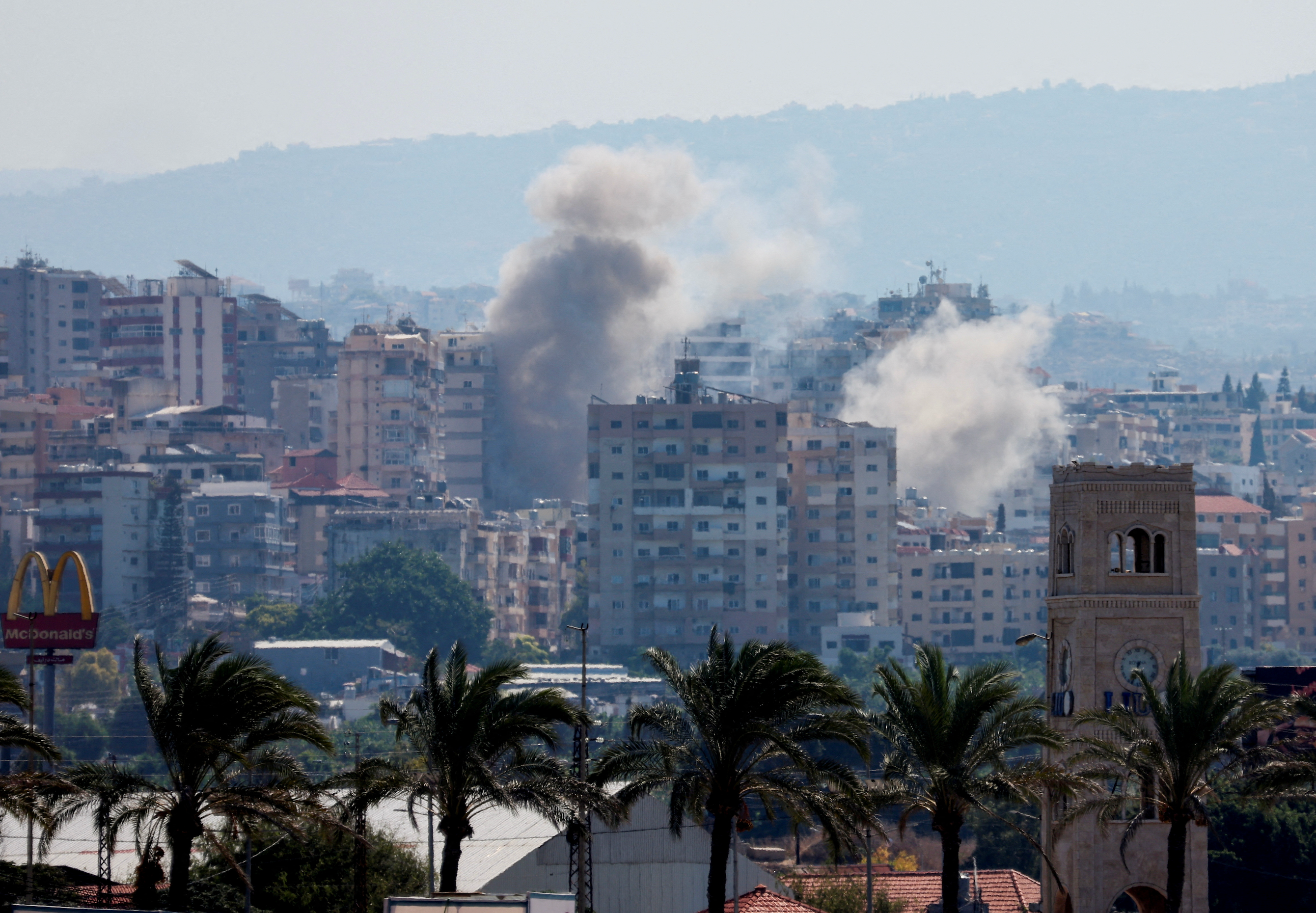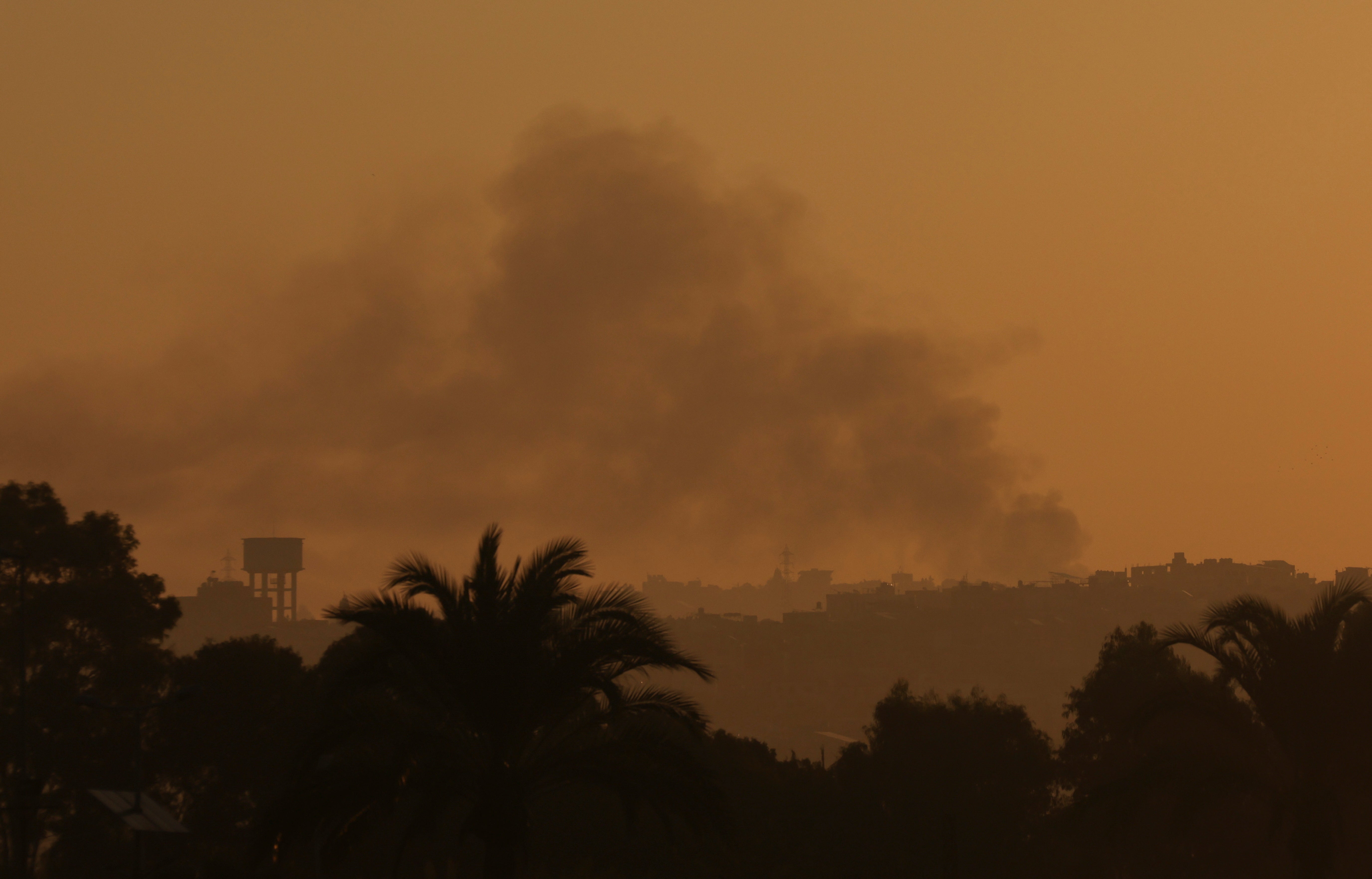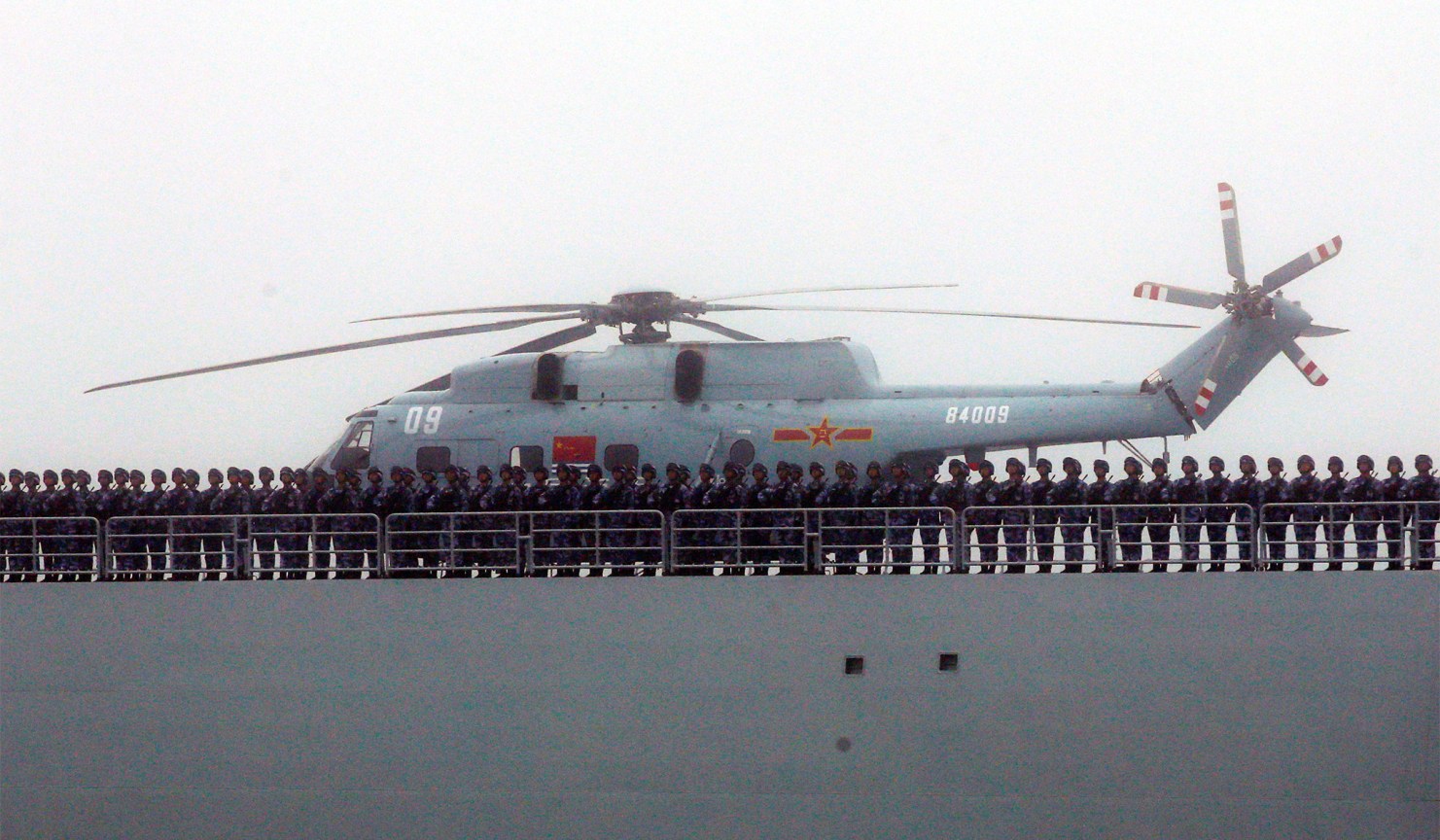
Israeli warplanes hit Lebanon again as Hezbollah takes aim at central Israel
By Maya Gebeily and Ari Rabinovitch
BEIRUT/JERUSALEM (Reuters) - Israel unleashed more airstrikes on Lebanon on Wednesday and Hezbollah militants fired salvoes of rockets into Israel in the heaviest exchanges between the arch-foes in a year.
Hezbollah claimed to have targeted the headquarters of the Mossad spy agency in Tel Aviv, Israel's economic capital.
World leaders meanwhile expressed concern that the conflict - running in parallel to Israel's war in Gaza against Hamas - was rapidly intensifying as the death toll in Lebanon rose.
The Israeli military has mounted its heaviest airstrikes in a year of conflict this week, targeting Hezbollah leaders and hitting hundreds of sites deep inside Lebanon while Hezbollah has fired barrages of rockets into Israel.
There was no let up on Wednesday. Israel said its warplanes were currently carrying out extensive strikes in south Lebanon and the Bekaa Valley, a Hezbollah stronghold.
The Iran-backed Hezbollah said in a statement it had fired a missile on Wednesday morning targeting the Mossad headquarters "in support of our steadfast Palestinian people in the Gaza Strip...and in defence of Lebanon and its people".
The Israeli military said a single surface-to-surface missile was intercepted by air defence systems after it was detected crossing from Lebanon. Spokesman Nadav Shoshani said he could not confirm what Hezbollah's target was when it fired the missile from a village in Lebanon.
"The result was a heavy missile, going towards Tel Aviv, towards civilian areas in Tel Aviv. The Mossad headquarters is not in that area," he said.
Warning sirens sounded in Tel Aviv and elsewhere in central Israel but there were no reports of damage or casualties.
The strike was the first time since the beginning of the war that a Hezbollah missile had been sighted above Tel Aviv, generally considered a target with the potential to trigger a sharp escalation in Israeli action.
Hezbollah blamed Mossad for the recent assassination of its leaders.
It has also accused the spy agency of carrying out an extraordinary operation last week in which the communications devices of Hezbollah members were booby-trapped and exploded, killing 39 people and wounding nearly 3,000. Israel has neither confirmed nor denied involvement.
At least 15 people were killed and around 50 wounded in Israeli strikes across Lebanon on Wednesday on five different locations, according to a Reuters compilation of Lebanese health ministry statements.
Israel has expanded the zones it has been striking since Tuesday night, with attacks for the first time on the beach resort town of Jiyyeh just south of Beirut and Maaysrah.
The strikes also took place in Bint Jbeil, Tebnin and Ain Qana in the south, the village of Joun in the Chouf district near the southern city of Sidon, and Maaysrah in northern Keserwan district.
Israeli authorities said the Galilee region of northern Israel was hit by heavy Hezbollah barrages on Wednesday morning.
In one salvo about 40 rockets were fired. Some were intercepted in mid-air, others struck open areas or penetrated air defences into populated areas, they said.
In the Israeli town of Safed, an assisted living facility was hit but no injuries were reported, the authorities said.
Near-daily exchanges of fire in the Israel-Lebanon border area started after war broke out last October between Israel and the Palestinian militant group Hamas in the Gaza Strip on Israel's southern border, with Hezbollah saying it was acting in solidarity with its ally Hamas.
Israel's focus has now turned to its northern frontier and southern Lebanon.
Since Monday morning, the Israeli offensive has killed 569 people, including 50 children, and wounded 1,835 in Lebanon, Health Minister Firass Abiad told Al Jazeera Mubasher TV.
Half a million people are estimated to have been displaced in Lebanon, Foreign Minister Abdallah Bou Habib said. In Beirut, thousands of people who fled from southern Lebanon were sheltering in schools and other buildings.
Pope Francis called the Israeli strikes a "terrible escalation" of the Middle East conflict, while British
Prime Minister Keir Starmer and U.N. Secretary General Antonio Guterres both said the escalation in fighting between Israel and Hezbollah was pushing the region towards the brink.
Israeli troops have been training for months for a possible ground operation inside Lebanon aimed at securing its northern border and enabling thousands of Israeli residents who fled for their safety to return to their communities, one of Prime Minister Benjamin Netanyahu's government's top war priorities.
(Reporting by Jana Choukeir and Clauda Tanios in Dubai and Joshua McElwee in Vatican City, Dmitry Antonov in Moscow and Kate Holton, Catarina Demony in London and Urvi Dugar; writing by Michael Georgy; Editing by Angus MacSwan)










